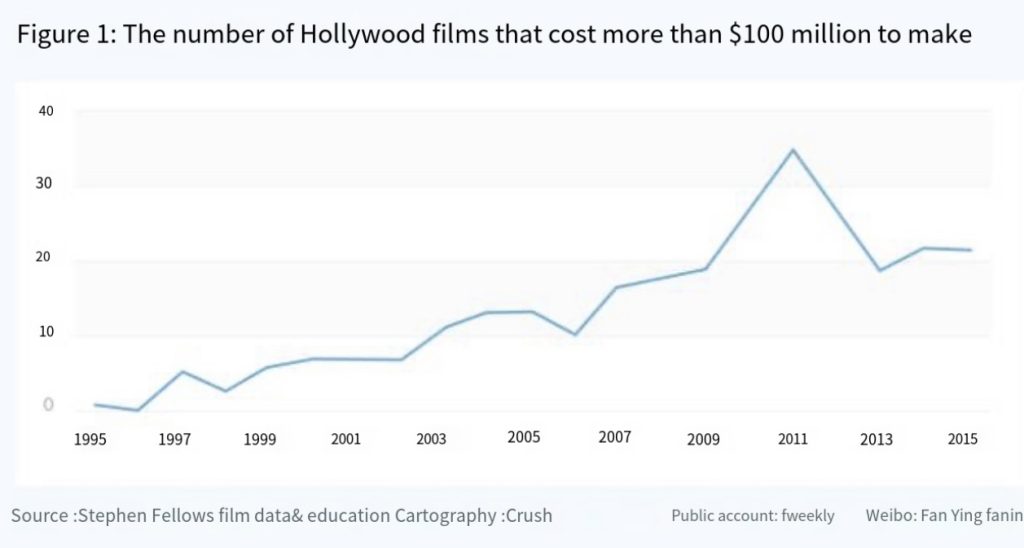In this lecture, we discussed a topic related to the cultural industry, and I learned that throughout history, the cultural industry has gradually become politicised and commodified, and some works of art have gradually become carriers of “capitalist values”. I think Hollywood is an example of the commodification and politicisation of the cultural industry.Â
Nowadays, commercial films occupy the majority of the film market, and Hollywood films are mainly commercial films that gather popular stars, famous directors, complex special effects, huge investments, large-scale publicity and so on.Â

The commercialisation of film is due to the fact that the ideology of the film leader is “business”. Capitalism has turned cinema into a huge business that can shape people’s thoughts and feelings. For our audience, after watching the film, we can only receive such views as “be a brave person” and “protect the loved one”, and there is no value for our own improvement, and it cannot cause any social thinking and resonance.
For example, a few years ago in China there was a film called “Dying to Survive”, which told the story of a man who became a drug dealer to help a group of leukaemia patients who could not afford medicine. After the film was broadcast, it sparked a heated debate in society, and the government will reintroduce some special diseases into medical insurance, greatly reducing the financial burden on patients. I think this kind of “storytelling” film is what our society really needs now, not some film that tells the great truth.


Politicization is another feature of the film. Since film, as a very vivid mode of image transmission, is more easily loved by the audience, it naturally becomes a convenient carrier for the implementation of cultural hegemony. It is not difficult to see that there are distinctive American characteristics and values in Hollywood films. The protagonists have amazing superpowers and intelligence, and can save a city, a country, or even the whole world when disaster strikes. By watching the film, people will unconsciously accept the hegemony of the United States.
The culture industry is one of the ways in which capitalism tries to maintain human underdevelopment. However, over-catering to political and commercial concepts will lead to the loss of the artistic value and appreciation that culture should have, and its creativity will also be limited. I think that if viewers only pay attention to the works at the top of the price list, their appreciation and appreciation concepts will converge, which is not conducive to enhancing public appreciation.
I think society needs to change this status and make culture a vehicle for storytelling again, rather than a vehicle for capital.


The reason I chose the written blog is that I think it is a better way to express my opinions, and I can include some charts and graphs to back up those opinions and give examples to prove them. It can’t be done any other way.
Reference
M Gigi Durham and Douglas Mackay Kellner (2012). Media and cultural studies : keyWorks. Malden Etc.: Wiley-Blackwell, pp.163–173.
Walton, S. (2017). Theory from the ruins. [online] Aeon. Available at: https://aeon.co/essays/how-the-frankfurt-school-diagnosed-the-ills-of-western-civilisation.


I agree with you. Most of time, I watch movies that have a deep meaning on the surface but are actually meaningless to our real life. The media is a very important form of expression that reflects social phenomena. Reflecting social issues and attracting public attention through media forms such as film is a significant method of communication between the public and the government.
I agree with you that after the commercialization of the film industry, some films are just made for money. As a matter of fact, such films only attract attention for a while, and have no actual cultural output. If such films appear more and more, the audience will gradually lose their ability to think. Of course, things also have two sides, because it is undeniable that commercial films can indeed earn a lot of money, and more artistic and cultural expression of the film on the audience’s aesthetic level and high ideological requirements are relatively high, so sometimes not accepted by the public. So in this context, this is one of the reasons why manufacturers prefer to produce commercial films. But this does not mean that films with profound meaning should disappear, I think there should be a balance of commercial and cultural exports.